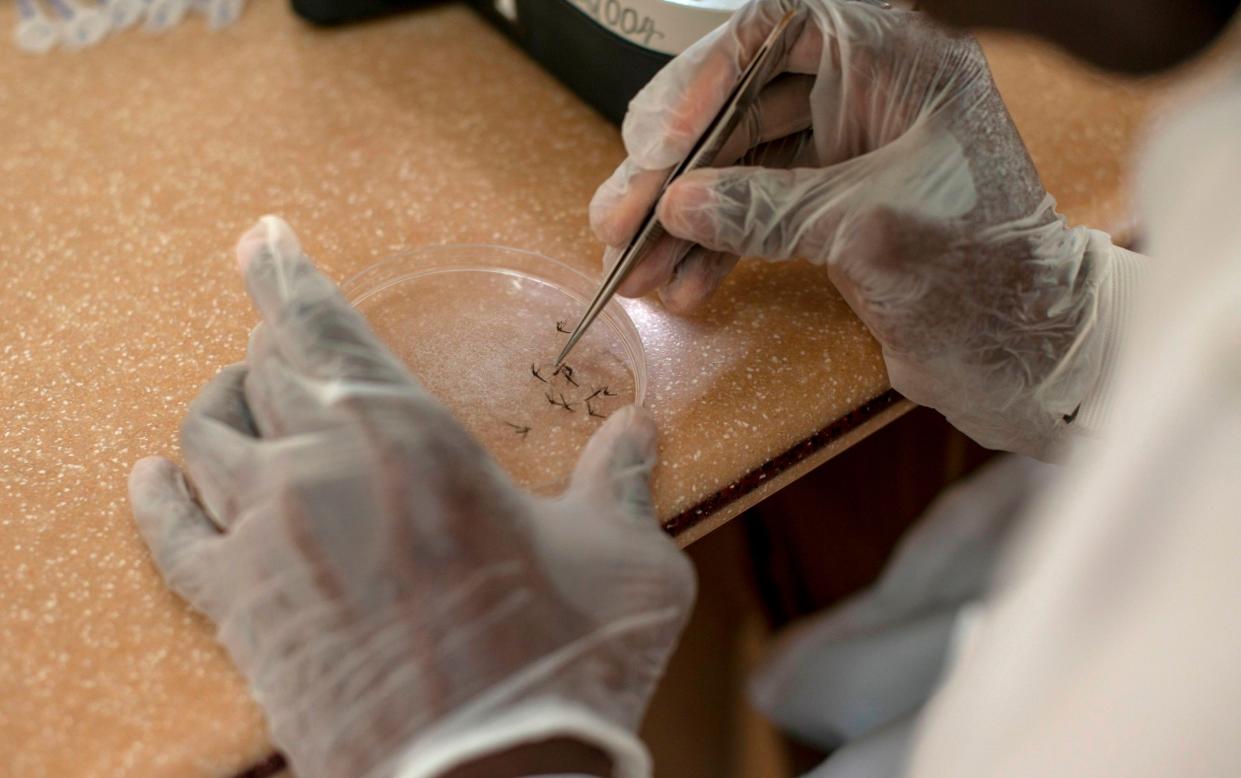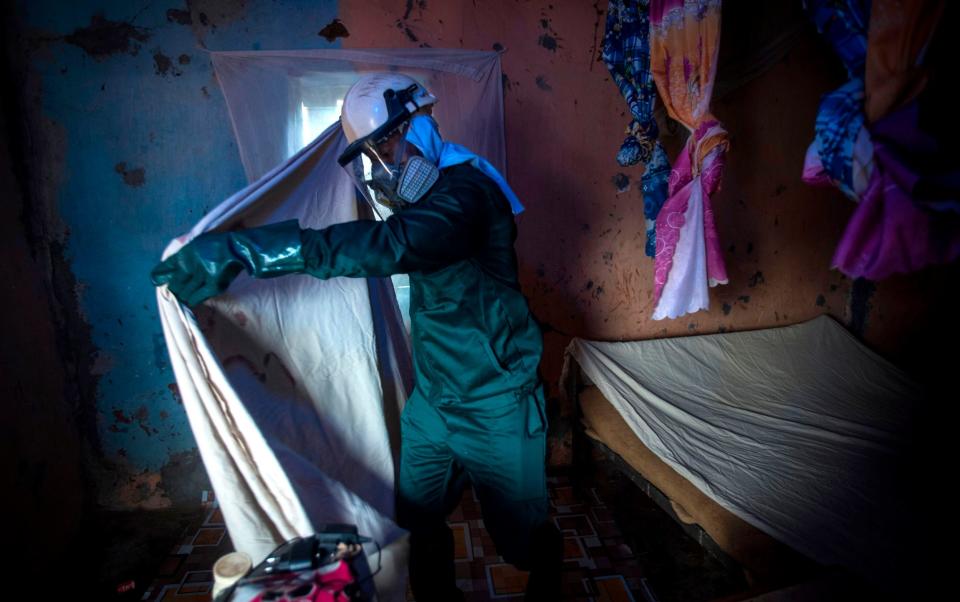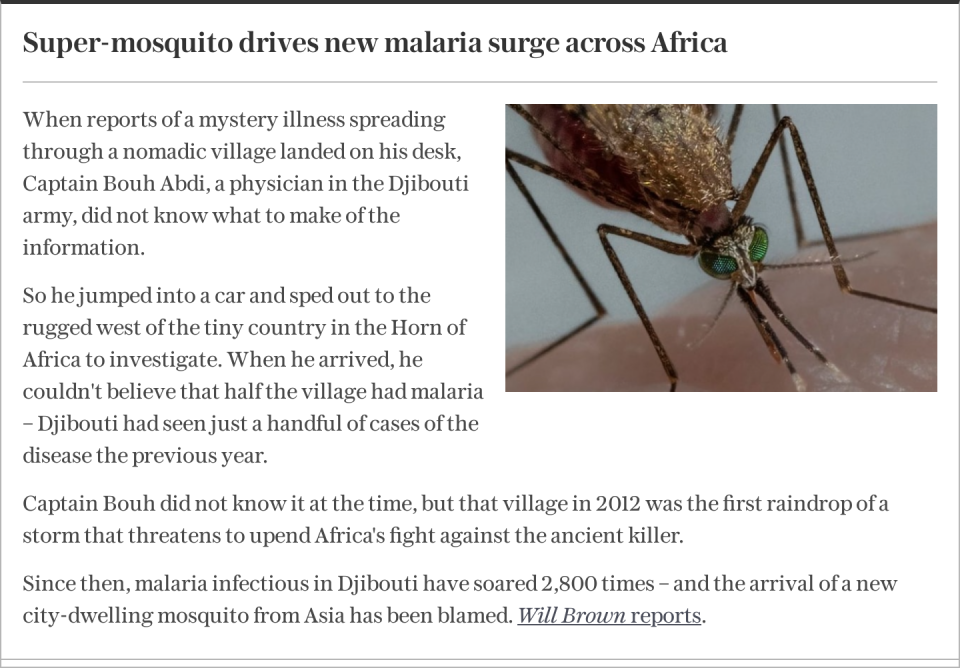Hand-held sequencing device may help track resistant-malaria in African hotspots

New portable genetic sequencing software is being trialled in Ghana to track mutations in malaria parasites.
Malaria, which kills 600,000 annually, is becoming increasingly resistant to treatments and tracking the mutations that cause it is becoming more pressing.
Mutations of the most deadly strain have been reported in multiple East African countries, but research in the region has been limited – largely due to its cost.
Now, positive results from a project in Ghana suggests portable computer software may help scientists track the disease much more closely in future.
“We analysed 196 clinical samples and showed that our method is rapid, robust, accurate and straightforward to implement,” said the study published in Nature Microbiology last week by a team led by the University of Ghana and The Wellcome Sanger Institute. “Our study demonstrates the feasibility of nanopore sequencing for malaria genomic surveillance in endemic countries”.

Using just a laptop and pocket-sized genetic sequencing device, blood samples from malaria-infected patients were processed in low-cost labs in just two days, allowing researchers to monitor the evolution of the parasites in near real time.
The sequencing device was trialled in two locations – a hospital in Ghana’s capital, Accra, and a clinic in Navrongo, a rural village where malaria mortality is particularly high for young children.
Analysis found multiple genetic differences between circulating malaria strains and the protein targeted by newly recommended malaria vaccines, potentially undermining their effectiveness.
The project holds out the possibility of improved disease tracking in low-resource settings.
Genomic sequencing is typically used in richer countries due to the high costs of equipment, meaning diseases in large parts of the globe are not being tracked properly. Often, samples are sent from Africa to laboratories in the UK and US for testing.
“In the case of infectious diseases, it is imperative that patients can be diagnosed quickly and genomic data can be analysed promptly to determine if infection control measures need to be taken to control an outbreak”, said Neil Ward, a genomics expert at PacBio, a Californian gene sequencing company. “Sending potentially pathogenic samples across national borders to expert genomic centres isn’t a viable proposition.”

The portable sequencing devices used in the study were created by Oxford Nanopore Technologies (ONT). They work by analysing samples taken through a finger prick which is quick and easy to do in the field.
“You don’t need a supercomputer cluster. You just need a laptop – they are the same laptops teenagers would have in their room,” said Will Hamilton, a clinical academic of infectious diseases based in Cambridge and researcher on the project. “I hope it will support the decentralisation and spread of genomic sequencing capacity across endemic regions.”
Scaling up the roll-out of the technology is a challenge, however, because the biological reagents needed for sequencing remain expensive in Africa.
“Access to reagents remains a huge problem in the African market place where there are middle-men in the supply chain,” said Lucas Amengo-Etego, a research fellow West African Centre for Cell Biology of Infectious Pathogens (WACCBIP).
“But, reality is that the [portable] technology still does better in addressing these challenges than any of the other major sequencing platforms. I have no doubt that it holds the keys to the future of pathogen surveillance in Africa,” he added.
Protect yourself and your family by learning more about Global Health Security

